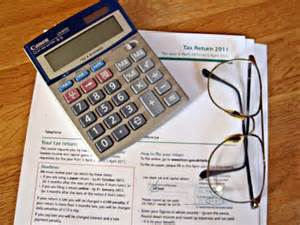 When in income tax was first introduced in the UK in 1798 by the then Prime Minister William Pitt the younger it was meant to be a temporary measure. As events have turned out, income tax has been a constant in our financial lives pretty much ever since. Given this rather depressing fact, it is probably a good idea to have a grasp of the basics relating to income tax, and where you can go to get advice if you need.
When in income tax was first introduced in the UK in 1798 by the then Prime Minister William Pitt the younger it was meant to be a temporary measure. As events have turned out, income tax has been a constant in our financial lives pretty much ever since. Given this rather depressing fact, it is probably a good idea to have a grasp of the basics relating to income tax, and where you can go to get advice if you need.
So if you are new to this topic, and think you might have to pay income tax for the first time, or perhaps have been paying it for years but never understood how it worked… read on.
First of all the good news; every individual in the UK has a “financial personal allowance” which is officially recognised by the HMRC (Her Majesty’s Revenue & Customs) and is revised upwards by the Chancellor of the Exchequer each year in the budget. For 2015-2016 this amount is £10600.00. This means that every year we can all earn up to this figure before we are liable to pay a penny of income tax. After this we all become “basic rate income payers”. This means that every subsequent pound earnt is liable to be tax at 20%, leaving the recipient with just 80 pence.
This rate of 20 pence in every pound applies to the next £31,786 that you earn. After this you become a higher rate tax payer and things get somewhat more punitive. From £31,786 – to £150,000 you are liable for a rate of 40 pence in each pound. For those who have the standard personal allowance this means this rate cuts in earning after £42,386.
For most of us the extraction of the HMRC cut is performed by your employer via the highly efficient PAYE (Pay as You Earn) process. However, it is your responsibility to ensure that you provide your employer with your correct tax code; otherwise you might find yourself paying tax on ALL of your earnings.
It is also worth remembering that as far as HMRC are concerned the year runs from April 6 2015 – April 5th 2016. All calculations for tax liability in a particular year are calculated on earnings between these dates. Income tax rate and rules regarding allowances are subject to change from year to year, and it is worth seeing how these changes might affect your personal situation.
Finally a word of advice; the taxman is armed with an array of legal powers to ensure they collect any tax from that is legally due. It is always extremely important to be open and honest in any dealings you have with HMRC. The taxman has a long memory and things have a nasty habit of coming back to bite you many years later. Conversely if you think you are paying too much tax and should entitled to additional allowances then inform HMRC, and you never know to might get a very pleasant rebate. In short it is not good idea to fall out with the taxman, as you will probably lose.
So is that it? Well not exactly as you will more than likely find yourself paying national insurance as well; but that’s another story for another blog.

